No, it is not time to ditch the NPT
By Adam M. Scheinman | October 7, 2019
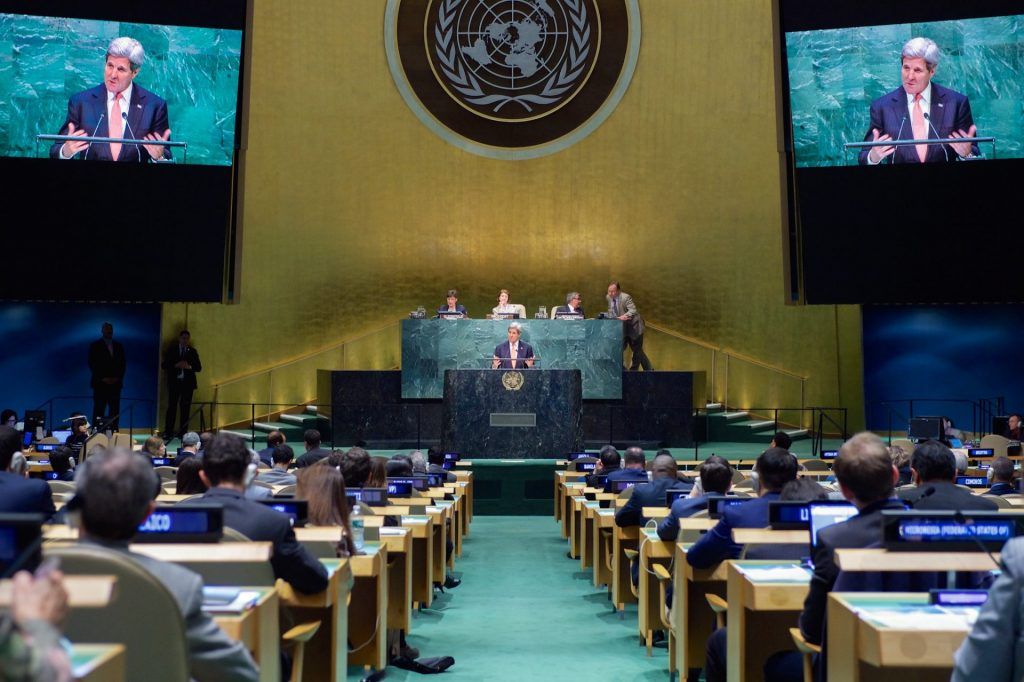 John Kerry speaking at the 2015 NPT Review Conference, April 2015. Photo credit: US Department of State.
John Kerry speaking at the 2015 NPT Review Conference, April 2015. Photo credit: US Department of State.
It was enormously disappointing to read Joelien Pretorius and Tom Sauer’s recent article asking whether it is “time to ditch” the Treaty on the Non-Proliferation of Nuclear Weapons (NPT). In that article, the authors conclude that the NPT is so far beyond repair that the non-nuclear weapon states have nothing to lose by withdrawing en masse. This conclusion is wrongheaded, misplaced, and self-defeating. Fortunately, there’s a better way forward.
Why is it wrongheaded? Because as a practical matter, mass withdrawals from the NPT would ransack the legal and policy framework for nuclear nonproliferation enacted and strengthened over the course of 50 years. Consider that withdrawal from the NPT essentially nullifies a state’s legal obligation to accept nuclear verification by the International Atomic Energy Agency. Consider that the verification required by the NPT is the legal basis for peaceful nuclear supply by exporting countries. Consider that withdrawal triggers involvement of the UN Security Council and justification of the extraordinary events that jeopardize a withdrawing party’s supreme national interests. Consider, too, that assurances by the United States not to use or threaten to use nuclear weapons against non-nuclear weapon states are tied, both as a general policy and legally in connection with protocols to nuclear-weapon-free zone treaties, to compliance with the NPT.
A mass pullout from the NPT only invites mass confusion, splintering the system of nuclear controls built up over decades of painstaking diplomacy. States would scramble to make alternative arrangements for nuclear verification and export controls that would likely take years to negotiate, much less harmonize to ensure everyone is playing by the same rules and not offering sweetheart deals to gain a competitive advantage in nuclear sales. In a post-NPT world, could Russia be counted on to require the same nonproliferation conditions as the United States? Would China adopt nuclear trade standards set in US law? The answer to both questions is no. Harmonizing state policies and practices is a principal benefit of the current nonproliferation system, based in the NPT. If states were to withdraw from the NPT en masse, all of that would be lost.
And don’t assume the Treaty on the Prohibition of Nuclear Weapons (or so-called “Ban Treaty”) favored by Pretorius and Sauer could substitute for the NPT. It cannot—for the most obvious reason that the United States, other nuclear powers, and most major nuclear supplier states do not support it. A theatrical collective NPT walkout will not change that central fact.
Why is it misplaced? Because mass withdrawal from the NPT will not solve any nuclear weapons challenge on the global docket—not a single one. The Ban Treaty would prove no more capable than the NPT in halting the nuclear arms race underway in South Asia or in creating conditions for a nuclear-weapon-free zone in the Middle East. Nor would it magically inspire North Korea to disarm or lead the NPT’s recognized nuclear weapon states to launch a process to eliminate their own nuclear weapons on an agreed timeframe, which for Pretorius and Sauer is the NPT’s only hope for redemption.
Even the NPT’s most ardent supporters (myself among them) concede that the treaty is imperfect, but its collapse in part or in total can only increase nuclear dangers. After all, it was the fact of Iran’s violations of the NPT that made possible the agreement in 2015 to limit Iran’s nuclear program. Moreover, UN Security Council sanctions against North Korea followed its withdrawal from the NPT in 2003. And the NPT’s promise of eventual nuclear disarmament has been invoked by the United States in every nuclear arms control agreement it has signed and brought into force. Those are considerable benefits, and I would hope NPT defectors think long and hard about the consequences for collective nuclear security before contemplating withdrawal.
Why is it self-defeating? Because the global system is in a period of transformation, and an NPT that fractures will tempt states living in unstable or proliferated regions to go for nuclear weapons as a security hedge. This is hardly theoretical for Japan, South Korea, Ukraine, or even Germany—states that face nuclear-armed neighbors who show little regard for a liberal, rules-based order. A recent RAND study lists the NPT system among the successes of that order. But can it hold? Clearly, it will not if more states acquire nuclear weapons. The effects would not only be devastating for the nonproliferation regime but also add a new, dangerous dimension to nuclear deterrence. With new nuclear players in Europe or Asia, Russia and China will be tempted to expand their nuclear arsenals, both in quality and quantity, to preserve a dominant strategic position against smaller, regional rivals. The United States would hardly be a disinterested bystander, particularly given its extended nuclear deterrence obligations, meaning the nuclear arms race would be back on in a major way.
Arguably, a slow-motion nuclear arms race is already taking form as Russia, China, and the United States jockey for power and influence and pursue new military technologies that could upset the nuclear balance. The existence of the Ban Treaty will have no impact on this budding competition, and most certainly not in China or Russia, where a civil society that functions to constrain government choices is so glaringly absent. And while civil society does function in the United States, the Ban Treaty campaign has failed to gain a political foothold outside of a narrow, expert community. Nuclear abolition is simply not a winning issue in American elections. Spotlighting the humanitarian impacts of nuclear weapons— the basis of the international Ban Treaty campaign—may resonate in other democratic societies, but there is no evidence of such a transformation occurring here in the United States anytime soon.
For its efforts, the Ban Treaty campaign received the 2017 Nobel Peace Prize, an impressive, hard-fought achievement to be sure. But will the Ban Treaty bring the world a step closer to nuclear disarmament? There’s not a chance of that in the absence of support of the major powers. For better or worse, this will remain the case until a system of security based on nuclear disarmament can reliably replace one that is in some measure based on nuclear deterrence. The NPT serves as a transmission belt between these alternate conceptions, encouraging restraint both among the nuclear weapon states and those that agree to never build them. Until we come up with a design for a global security order that excludes nuclear weapons, we should focus on strengthening the NPT in all of its aspects, not dropping it in the dumpster like an old pair of shoes.
A better way to fortify the NPT. Fortunately, for most states NPT withdrawal is not a serious consideration. They understand it would be reckless, as there is no other treaty committing the five nuclear powers to work toward disarmament.
Still, a loss of confidence in the NPT is an urgent problem, and one that treaty parties should spare little effort to address. That could start with a call to halt political infighting in the NPT review cycle. When the parties meet next May for the NPT’s 50th anniversary, they might agree in advance to set aside partisan bickering and adopt a brief, simple, consensus final document that affirms the NPT’s foundational contributions across each of its three pillars—disarmament, nonproliferation, and peaceful nuclear uses. And if they were honest about it, states might also acknowledge that the most significant challenges to the NPT are external to it. After all, pronouncements of NPT meetings cannot compel action by the likes of India, Israel, North Korea, or Pakistan, which are not party to it. Rather than condemn the NPT or impugn the motives of its members, a better idea would be to look outside the NPT for the solutions to the problems that bedevil it.
Thinking big, the United States and willing partners could pursue a strategy that embeds nuclear risk reduction in wider efforts to repair a fraying global order. At its center would be a program of order-based nuclear diplomacy that promotes avenues for major power cooperation and deals with the regional conflicts that fuel proliferation. Such a program could include a fresh US-Russian dialogue on security in Europe and requirements for strategic stability. The two could agree to extend New START through 2026, as the treaty allows, while dialogue proceeds on other buckets of issues, such as NATO-Russia relations, the Ukraine conflict, nuclear stability, and cooperation on nonproliferation and nuclear security. A program of this sort could appeal to Putin, given that the alternative is a strategic arms race that Russia can neither afford nor win, and an acceleration of NATO countermeasures in Europe that will erode Russia’s position in the region.
Similarly, the United States and China could launch talks on regional security frameworks for East Asia. Those talks could take into account China’s rising position and the US responsibility to defend its allies and keep open the sea-lanes. To kick-start this dialogue, the United States might acknowledge a condition of mutual nuclear vulnerability with China (that is, an assurance that the United States does not aim for nuclear primacy). China could reciprocate with an assurance that it will respect the status quo over Taiwan and US defense commitments to Japan and South Korea. As with Russia, bilateral talks could be wide-ranging, to include military and maritime security, nuclear arms and strategic defenses, and cooperation on North Korea. Such a bilateral program could appeal to China’s cautious leaders and forestall a zero-sum security competition that risks precipitating a military conflict in the Pacific that neither government seeks.
Progress with China would naturally influence nuclear weapon developments in South Asia, given that the Indian nuclear program is keyed to China, and Pakistan’s to India. India will not welcome outside mediation on Kashmir, the most likely nuclear flashpoint in the world today, but greater effort could be made to encourage dialogue on the subcontinent to freeze the nuclear build-up currently underway, discourage either side from risky nuclear postures that invite preemption or miscalculation, and address other key concerns including cross-border terrorism and stability in Afghanistan. This is not asking for the moon, as there is precedent in the 1999 Lahore Declaration, a process that should be resuscitated before these nuclear neighbors stumble into an unwanted nuclear war.
A program of order-based nuclear diplomacy is perhaps most urgently needed in a transitioning Middle East, where the security situation is fluid, dangerous, and uncertain. But transition in the region may also generate opportunities. A realignment is already underway given the shared interest of Israel and some of its Arab neighbors in restraining Iran and its proxies. Rather than use NPT meetings or the UN system to pressure Israel to open its nuclear program to international inspectors, Arab states would do better to open dialogue directly with Israel on shared security problems and conditions that would allow for progress on arms control, regional defenses, missile proliferation, terrorism, and military confidence- and security-building measures of the sort adopted in Cold War Europe through the Helsinki process. If the regional states thought it was useful, the United States, Russia, and perhaps the European Union could offer their facilitation services.
All of this is admittedly a big lift and could not succeed absent clear and consistent leadership, particularly from Washington. It would require presidential and cabinet-level attention, not on those occasions when nuclear issues or crises pop up, but as an organizing principle for US national security policy. It would elevate nuclear diplomacy as a US priority, using it as a tool to address regional security problems that are testing the resiliency of a rules-based order and the NPT’s place in it. The problems of the NPT will not be solved by abandoning or bashing it. Nor does speech-making, however mellifluous or pious, offer any salvation.
An erosion of support for the NPT will not usher in an era of nuclear disarmament and world peace. Nor can the Ban Treaty alone advance this cause. Maybe the parties can agree in 2020 to set aside their differences and use the occasion of the NPT’s 50th anniversary to reaffirm the treaty’s many important contributions. That would make for a nice birthday present.
Editors’ note: The views expressed in this article are the author’s own and do not necessarily reflect those of the US Department of Defense or any other US government agency.
Together, we make the world safer.
The Bulletin elevates expert voices above the noise. But as an independent nonprofit organization, our operations depend on the support of readers like you. Help us continue to deliver quality journalism that holds leaders accountable. Your support of our work at any level is important. In return, we promise our coverage will be understandable, influential, vigilant, solution-oriented, and fair-minded. Together we can make a difference.


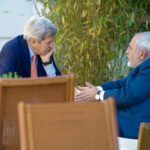
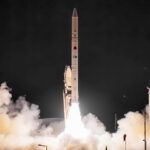
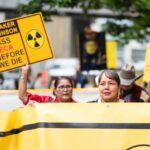

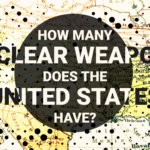
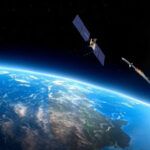







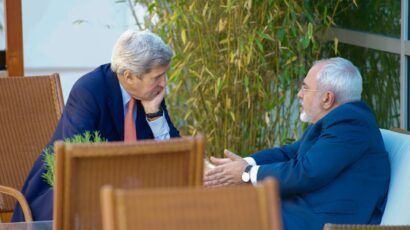
The NPT is a superb example of how diplomats can live with a Treaty that nøbody observes to the letter, and I mean: to the most important letter. They live with it, because they negotiate little understandings between nations that are often not in writing, and it keeps matters within bounds, as one might say. The written word can in any case be abrogated. What this means is that the NPT is a forum in which nations that are violating the treaty in abominable ways can be taken to task every five years by the others, who think themselves better… Read more »
This very eloquent defense of the NPT status quo is like many defenses of the status quo: containing a good deal of wisdom and founded on practical sense. But the assumption of defenders of the status quo is that the status quo is good for everyone–or good enough for everyone to keep. The position of revolutionaries is generally that the need for change counterbalances whatever residual benefit the status quo still provides (and the harm that will be caused by ripping it asunder). Sometimes the revolutionaries are right. (It’s hard to argue against revolutionaries in the United States, since our… Read more »